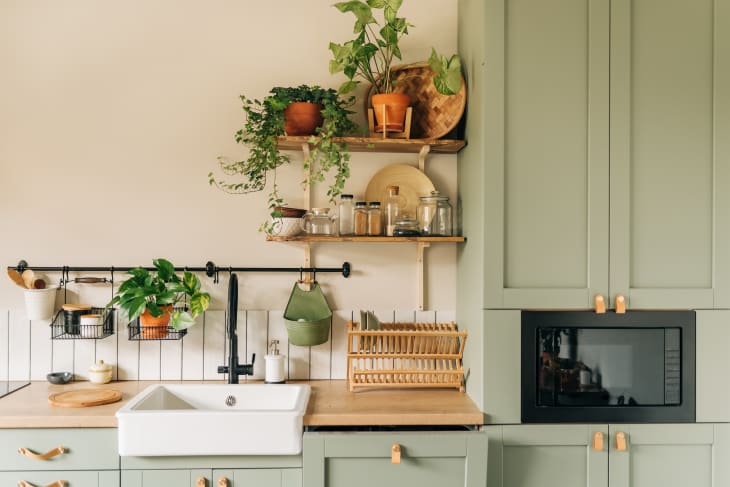The One Thing a Pro Plumber Never Does in His Own Home

The best role models for how to do things right around your home? The people who do those tasks professionally. Not only have the pros had years of experience, but they’ve seen it all out in the field — the good, the bad, and the very, very bad. That’s why the pros know what to do and what not to do in their own homes — and that’s also why you should follow their lead.
Pro plumber Omarr Picken, the founder of OP Plumbing, has one rule he always follows under his own roof, and says everyone else should follow it, too: Never pour cooking grease down your kitchen drain.
“This is something I have seen a lot of homeowners doing over the years,” Picken says. He says that most folks don’t give it a second thought because they think it’s harmless or do it impulsively because they don’t realize how it impacts pipes over time.
But cooking grease from meat and fish is one of the main culprits behind expensive-to-fix clogs — and Picken says any amount of the oily residue can be dangerous. “If you already have a semi-blocked pipe, a small amount of grease could be the tipping point for a major blockage,” he says.
That’s because unlike things like olive oil, avocado oil, and canola oil, which are liquid at room temperature, cooking grease is solid. “Grease solidifies once it cools and can cause significant blockages in your pipes over time,” Picken says. And because it starts as a liquid on its way into your drain, that cooking grease can actually make it a pretty long way before congealing to cause a future clog.
Once grease is in your pipes, it’s hard to shake loose without intervention — and you might not realize you have a problem until your sink suddenly backs up. That can result in a nasty DIY fix or a costly plumber visit.
The good news is that avoiding that fate actually makes life easier for lazy cooks. Instead of pouring grease down the drain, save the task for the next day. “Let the grease cool, scrape it off, and dispose of it in the trash,” Picken advises.
If you’re grossed out about leaving a dirty, fat-laden pan overnight, pour the grease into a designated container — an empty aluminum can will do the trick — or line your kitchen drain with aluminum foil before pouring grease in, letting it cool, and tossing it in the trash. When it comes to this chore, taking the easy road could save you lots of dollars in the long run.